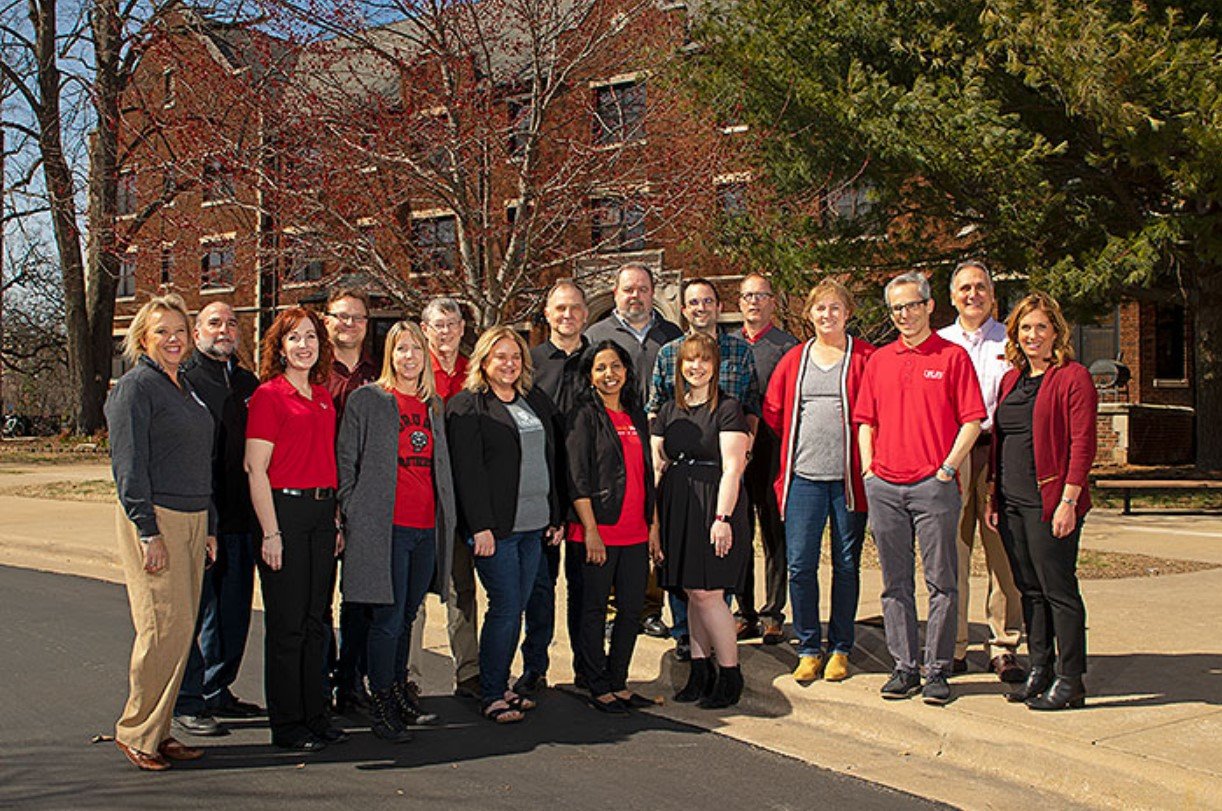YOUR BUSINESS AUTHORITY
Springfield, MO
YOUR BUSINESS AUTHORITY
Springfield, MO

“The skills and academic abilities required to meet the needs of employers and produce engaged community leaders is changing,” says Provost Dr. Beth Harville. “People who do the hiring say ‘What we want are employees who can address problems from multiple angles.’”
Looking toward the future and wanting to ensure their graduates are workforce ready, Drury faculty decided it was time to reconfigure the academic experience. The result is grounded in the school’s rich history, but focused on innovation for today’s world.
Your Drury Fusion
Starting in the fall of 2019, students will be able to customize their learning experience with Your Drury Fusion, which is designed to help students discover the ways in which their passions and future careers intersect.
With Your Drury Fusion, each student is guaranteed to earn life and career credentials, via a major, minor, or one of more than a dozen new undergraduate certificates that have been developed by the faculty. “All students will graduate with both profession and life credentials,” says Dr. Harville. “Profession credentials develop career-specific skills, while life credentials cultivate intellectual and academic skills and passions.”
In the process of earning credentials, students will graduate having done at least three real-world problems and projects. Graduates then use a digital portfolio that is co-curated with advisors to share proof of their work and knowledge base with prospective employers.
Compass Center
Your Drury Fusion also includes an innovative team-based approach to student advising that begins earlier than usual and goes beyond the traditional coursework advisement. Starting this planning early is intended to give the student a better-defined path to success though mentorship.
“We have developed this holistic advising center. It will be about many things but its primary purpose is to help students discover what their passions are and what their professional and life goals look like,” according to Humanities and Social Sciences Dean Dr. Jennifer Silva Brown.
The intent is to help students craft curricular and extracurricular experiences, better serving the students’ short- and long-term career and life goals.
“In most universities, students are assigned a faculty advisor in a kind of one-on-one model,” she says. “We’re not eliminating that essential component but through the Compass Center, students will also have access to what we call a mentoring squad.”
The Mentoring Squad
Dr. Silva Brown says the Compass Center is comprised of three arms:
• A faculty advisor and a Compass Center advisor to discuss options, passions, academic programming, and professional pursuits.
• A career advisor for career mentoring and planning and to discuss how those passions and professional goals align with major, minor, and certificate options.
• Tutors or any other academic assistance the student might need.
“With Your Drury Fusion and the help of this mentoring team, students get to learn a little about themselves and figure out what they’re passionate about and what they want to do,” says Silva Brown. “They get to pick multiple credentials that they’ll graduate with and then this team works with them through the course of their four years at Drury. So ultimately, they can help the students figure out what the next step is for them.”
Why Employers Care
“Employers, graduate schools, and professional schools tell us we no longer live in a world where a single-disciplinary focus is what’s needed,” says Harville.
Employers want market-ready graduates so Your Drury Fusion pushes hands-on experience earlier than most traditional degree programs and the certificates are all multi-disciplinary.
By the third year at Drury, students will be entering internships or other professional experiences, following a series of exercises that help students understand their passions and therefore better align with a professional direction.
“What we see is that students and employers today both desire this kind of multi-disciplinary approach to learning and doing,” says Harville. “It’s not enough just to have a collection of classes on your transcript. Employers want proof of work, not just a grade in a class. Students can take their digital portfolio to a prospective employer and say, ‘Here’s proof of the work I can do.’”
A franchise store of a Branson West-based quilting business made its Queen City debut; Grateful Vase launched in Lebanon; and Branson entertainment venue The Social Birdy had its grand opening.
$2M in tax credits awarded to SWMO nonprofits
Baldwin, Lathan to chair United Way campaign
Produce recall impacts food sold at Walmart, Aldi and Kroger
Mixed-used development proposed in KC area
Tax deduction program for farmers set to launch
Report: Panera explores sale of Caribou Coffee, Einstein Bros Bagels